Eastern Ontario place names have some fascinating stories to tell. Did you know that the region is home to communities named for a Mexican general, a line of English royals and the capital of Lithuania? If, like me, you’re fascinated by the origins of place names, read on.
Almonte was named for a Mexican general
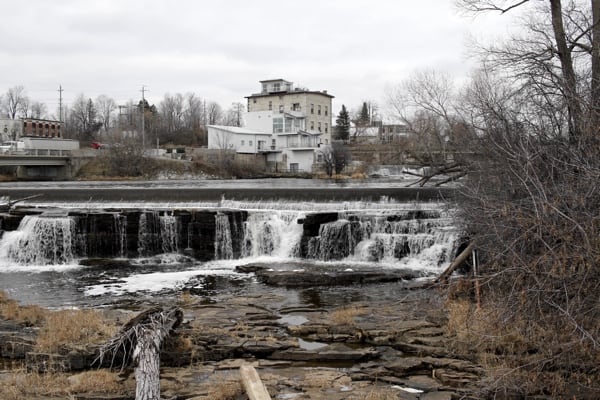
This is one of my favourite place-name stories. This Lanark County community originally went by a variety of names, including (depending which account you believe), Shepherd’s Falls, Shipman’s Falls, Shipman’s Mills, Victoriaville, Ramsay, Ramsayville and Waterford. When the good burghers of the town tried to register the name “Waterford” with the post office in 1855, however, they were turned edown because there was already another Waterford in what was then Canada West.
Casting about for another name that hadn’t already been taken, they thought of a former Mexican general who had been in the newspapers. Juan Almonte had fought at the Battle of the Alamo and was at that point serving as Mexico’s ambassador to the United States. He was a bit of a thorn in the side of the Americans, which amused and delighted some Canadians (some things never change). And so Almonte became perhaps the only community in Canada named for a Mexican general. (He pronounced the name Al-MON-tay, by the way.) In 1920, a Harvard professor wrote one version of the story.
Barry’s Bay was named for a lumberman
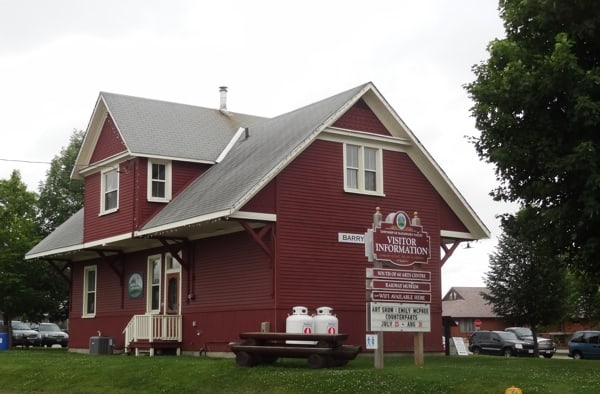
Who was Barry? According to the Madawaska Valley Public Library, he was James Barry, a foreman with an Arnprior lumber company, who was one of the first Europeans to build a cabin in this area, sometime in the mid-1800s.
Bourget was named for a bishop
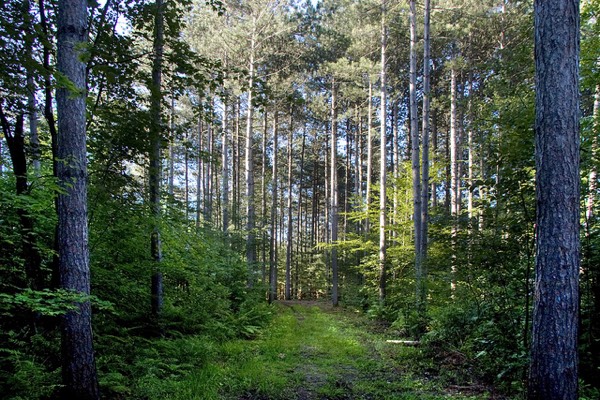
Bourget was named for Ignace Bourget, who was the bishop of Montreal in the middle of the 19th century.
Carleton Place was named for an area in Glasgow
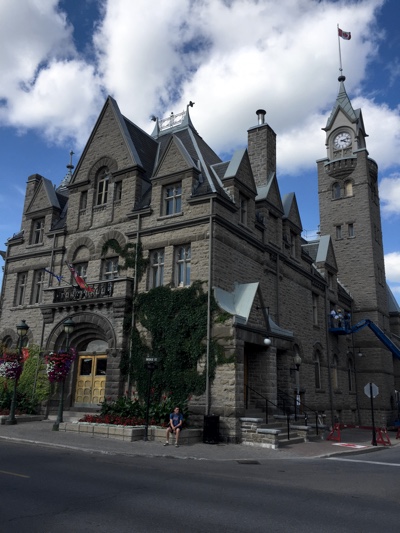
According to The Canadian Encyclopedia, the name “Carleton Place” is a slightly mangled version of “Carlton Place,” the name of an area of Glasgow. Perhaps the people who named it were also trying to work in the surname of Sir Guy Carleton, the 18th-century governor-general of British North America. He lent his name to places all over Eastern Canada, including Carleton University.
Kemptville was named for a governor-general
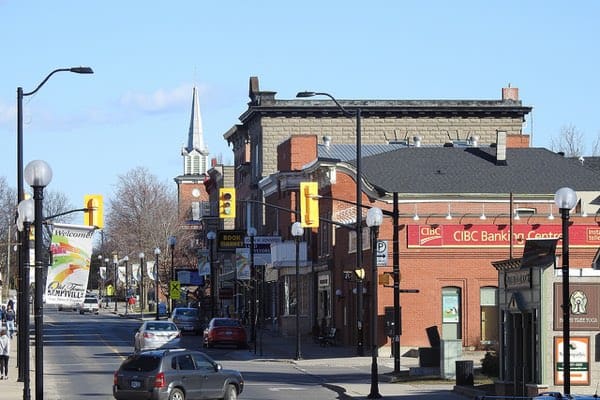
Those governors-general got around. Like tiny Kemptville, Nova Scotia (not to be confused with Kentville), the Kemptville in Ontario is named for a 19th-century governor-general of British North America, Sir James Kempt. He played a particular role in local history when he led a commission to look into Lieutenant-Colonel John By’s plans for the Rideau Canal.
Manotick was named for an island
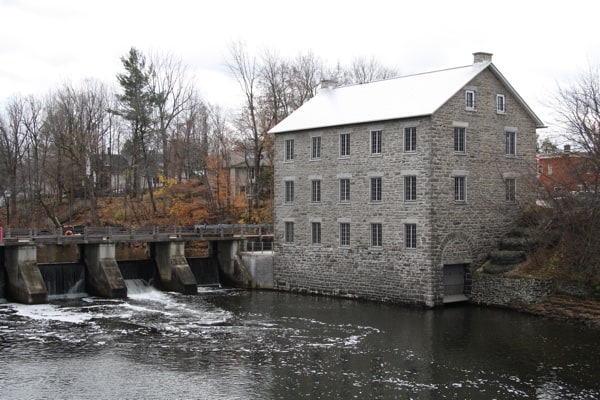
According to this post and several other sources, the name “Manotick” comes from an Indigenous word for “island” or “island in the river.” That makes sense, given that part of the community—once a separate village, now part of Ottawa—is located on Long Island in the Rideau River.
Merrickville was named for a Loyalist
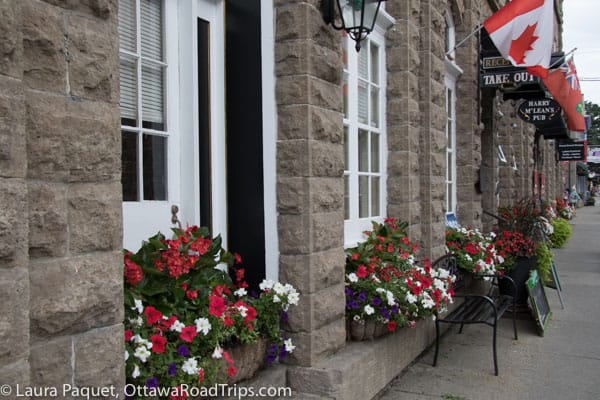
According to the Merrickville and District Historical Society, Merrickville was named for William Mirick, a United Empire Loyalist who built a sawmill there in the late 1700s. In the 1800s, the family and the community changed the spelling of the name to “Merrick.”
Plantagenet was named for a line of English royals
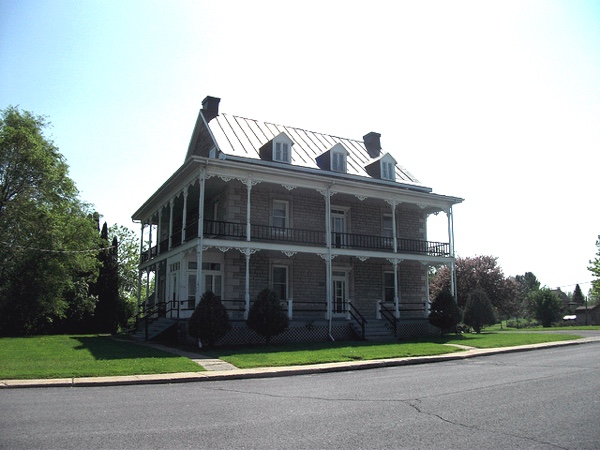
Plantagenet is named for the House of Plantagenet, a family that held the English throne from 1154 to 1485 and whose inter-family squabbles gave rise to the Wars of the Roses. Why is it named for them? That’s a question for more research.
Vankleek Hill was named for another Loyalist
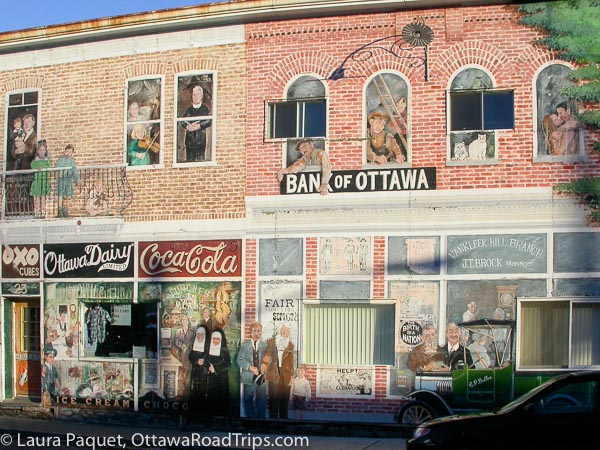
Like many other Eastern Ontario place names, “Vankleek Hill” comes from the moniker of one of those industrious United Empire Loyalists. In this case, it was Simeon Vankleek, a Dutch-American who settled here after leaving New York state around the time of the American Revolution. (Strangely but hilariously, “Simeon Vankleek” also briefly had a Twitter account in 2015.)
Wilno was named for what is now the capital of Lithuania
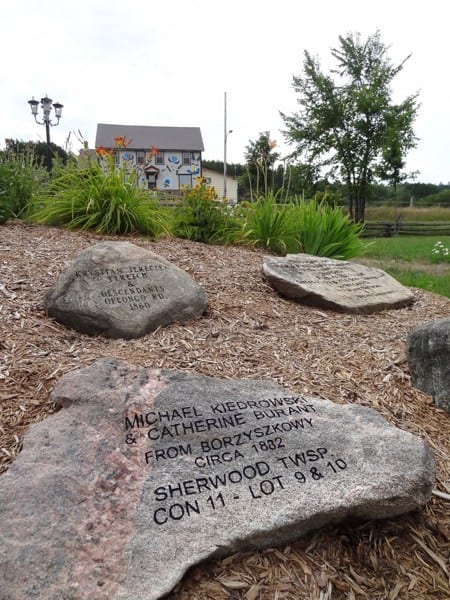
Settled by Kashubian immigrants from Eastern Europe, Wilno got its name from Vilnius, which is now the capital of Lithuania. Even though the Kashubs are most closely associated with Poland, a 19th-century Kashubian priest in what is now Wilno came from Vilnius.
And Calabogie was named for…well, your guess is as good as mine
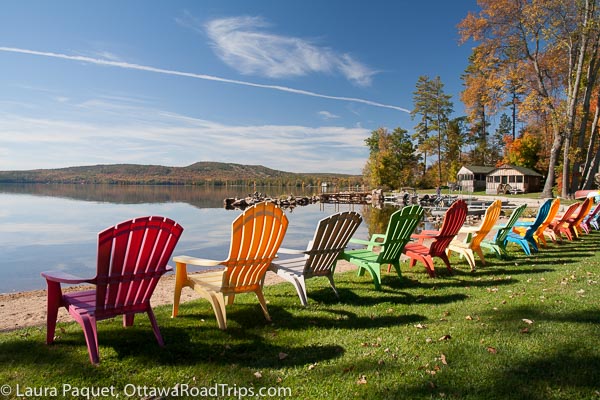
This is one of those Eastern Ontario place names that has always intrigued me. I love the fun, musical sound of it, and I’d hoped to discover its origin. Unfortunately for me, just about everyone seems to have an unproven theory. According to this post from the Township of Greater Madawaska, some think it’s a corruption of the Gaelic words for “marshy bay,” while others think it comes from an Indigenous word for “sturgeon.” This post from Peaksview Ski Chalets cites those theories, while adding that the name might come from a Spanish word for a body of water or from the name of a Newfoundland drink. Do you know? Post a comment!
And if you’d like to see more posts about Eastern Ontario place names, let me know that in the comments as well. Don’t forget to tell me which communities you’d like me to research. I’m always looking for excuses to dig up some quirky historical facts.
Want more tips on road trips from Ottawa—including info on hotel discounts, contests, festivals and other cool news? Subscribe to my free weekly e-newsletter! I will never spam you—promise.

16 comments
and of course, just west of Perth, is Bolingbroke Rd, named after a Plantagenet descendant
I didn’t know that! Sounds like a topic for a future post.
Pakenham just happens to be located on the Mississippi River. Is it just coincidence that Colonel Pakenham was in charge of the attack on New Orleans, going up the American Mississippi River?
Huh! I don’t know, but I will try to find out!
Balaclava, now a ghost town, is named after a battle in the Crimean War. And my home town of Prescott is named after a former Governor-General of both Martinique and The Canadas. Fascinating article, Laura.
Thanks, Peter! I didn’t know that about Prescott, and I’d forgotten about the ghost town of Balaclava. Hmmm, might need to do a sequel article… 🙂
Correction: It is spelled “Kentville” Nova Scotia. (Not “Kemptville”, as it is on Ontario)
Confusingly, there’s both a Kentville and a Kemptville in Nova Scotia! Kentville is larger and better known; Kemptville is just a wee place. https://en.wikipedia.org/wiki/Kemptville,_Nova_Scotia
I note you use ‘Opeongo Route’ in the Barry’s Bay segment. Isn’t this better known as the ‘Opeongo Line?
Good point! I’ve changed it.
Manotick is now located within the city of Ottawa as are many other rural communities such as: Carp, Dunrobin, Constance Bay, Fitzroy Harbour, Woodlawn, Kilburn, Corkery in the west end along with many more in the south and east. It may be interesting to record them before they disappear altogether.
Good idea for a future post! I revised this post a bit to clarify that Manotick is now part of Ottawa (I did know that, but the wording wasn’t as clear as it could have been).
To further clarify the origins of the name of Wilno, Ontario: Wilno was not named for Vilinus, Lithuania, to be sure. It was most certainly named for Wilno, Poland, (as evidenced by my deceased father-in-law’s birth certificate). When the map of Poland was redrawn after the Soviet invasion of 1939, the Wilno area was split between Lithuania and Belorussia. Sadly, Wilno, Poland was wiped off the world map and no longer existed. This complicated my father-in-law’s personal identity because later identity documents listed his birthplace as Vilinus, Lithuania. He always identified as a citizen of Poland, as was his birthright, and never as Lithuanian, even after immigrating to Canada!
Thanks for your comment! I’m not sure I understand; maybe it’s a problem with wording in my post. I meant that Wilno is named for the city that was known as Wilno when it was part of Poland, and is now known as Vilnius and is part of Lithuania. In other words, the geographic entity is still in the same place, but political boundaries and names have changed. Did I get that wrong? That’s how I understood the situation from this article. https://www.britannica.com/event/Vilnius-dispute
I’m sorry to hear of your father-in-law’s distress. It would be hard to go through that.
I’m swamped with deadlines this week but will take another look at the post soon.
There’s Khartum, now a ghost town, named to honour a local man who died on an expedition to Sudan. The Nile expedition consisted of many Ottawa Valley loggers and is fascinating history!
https://www.ruralroutes.com/7749.html
https://www.historicalsocietyottawa.ca/publications/ottawa-stories/personalities-from-the-very-famous-to-the-lesser-known/the-nile-voyageurs
Oooh, I’ve often wondered about the origins of that place name–thanks, Brianna!